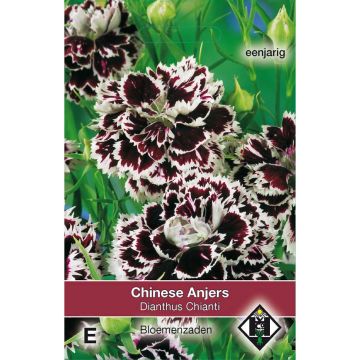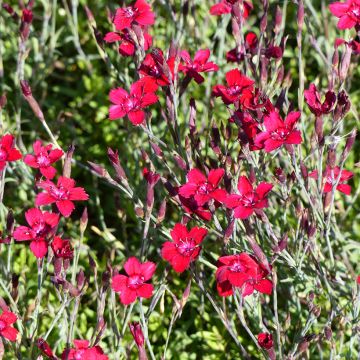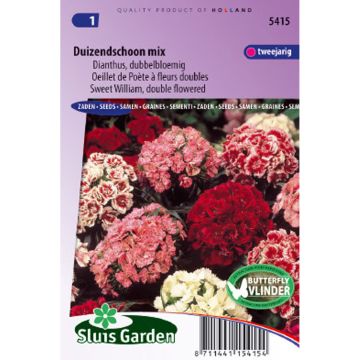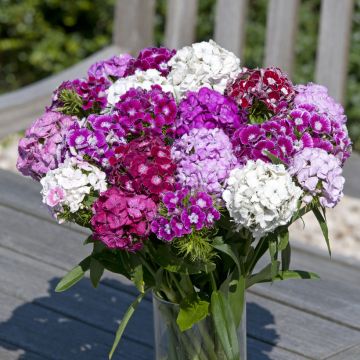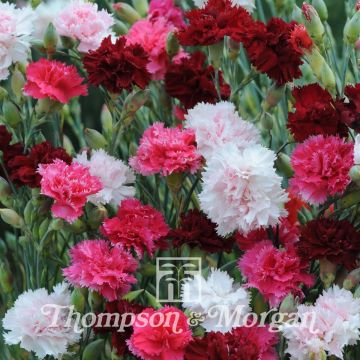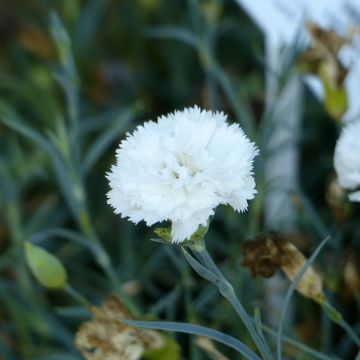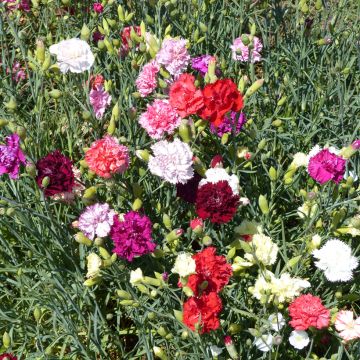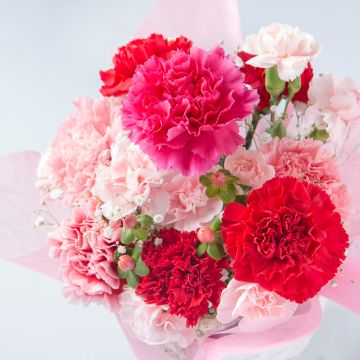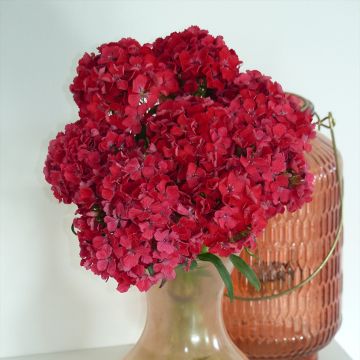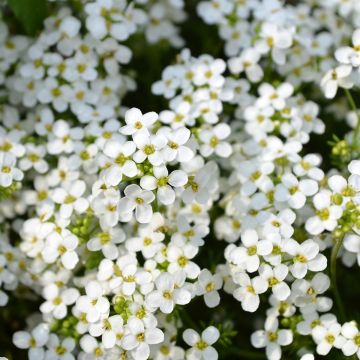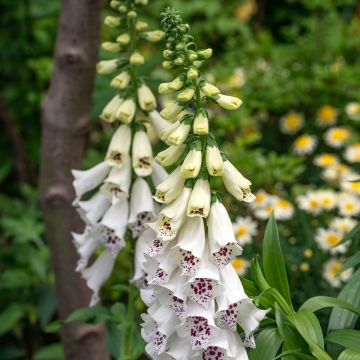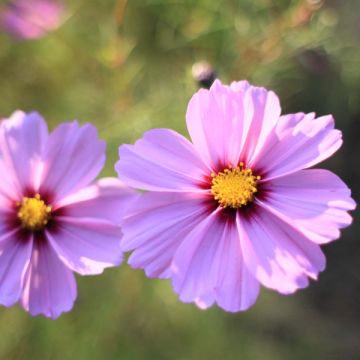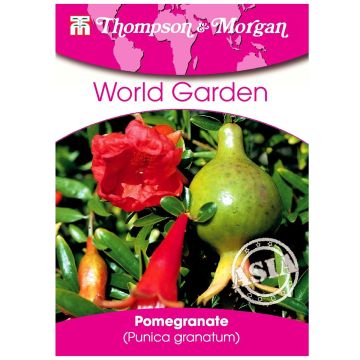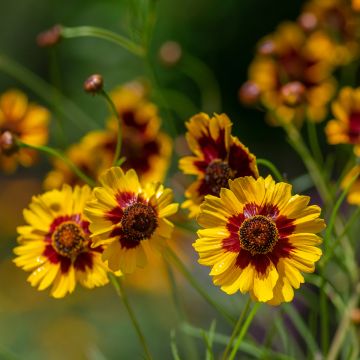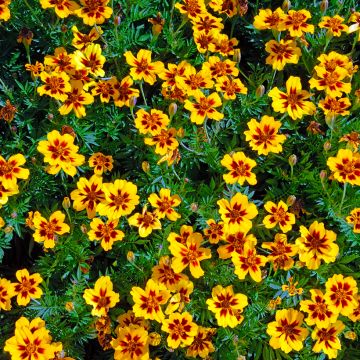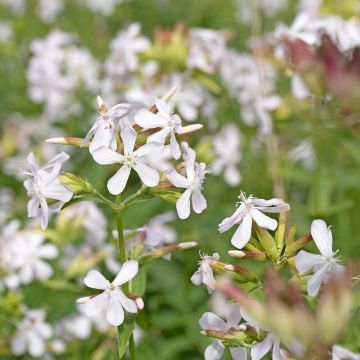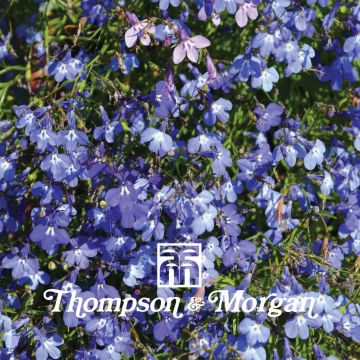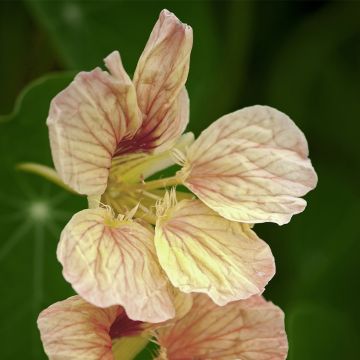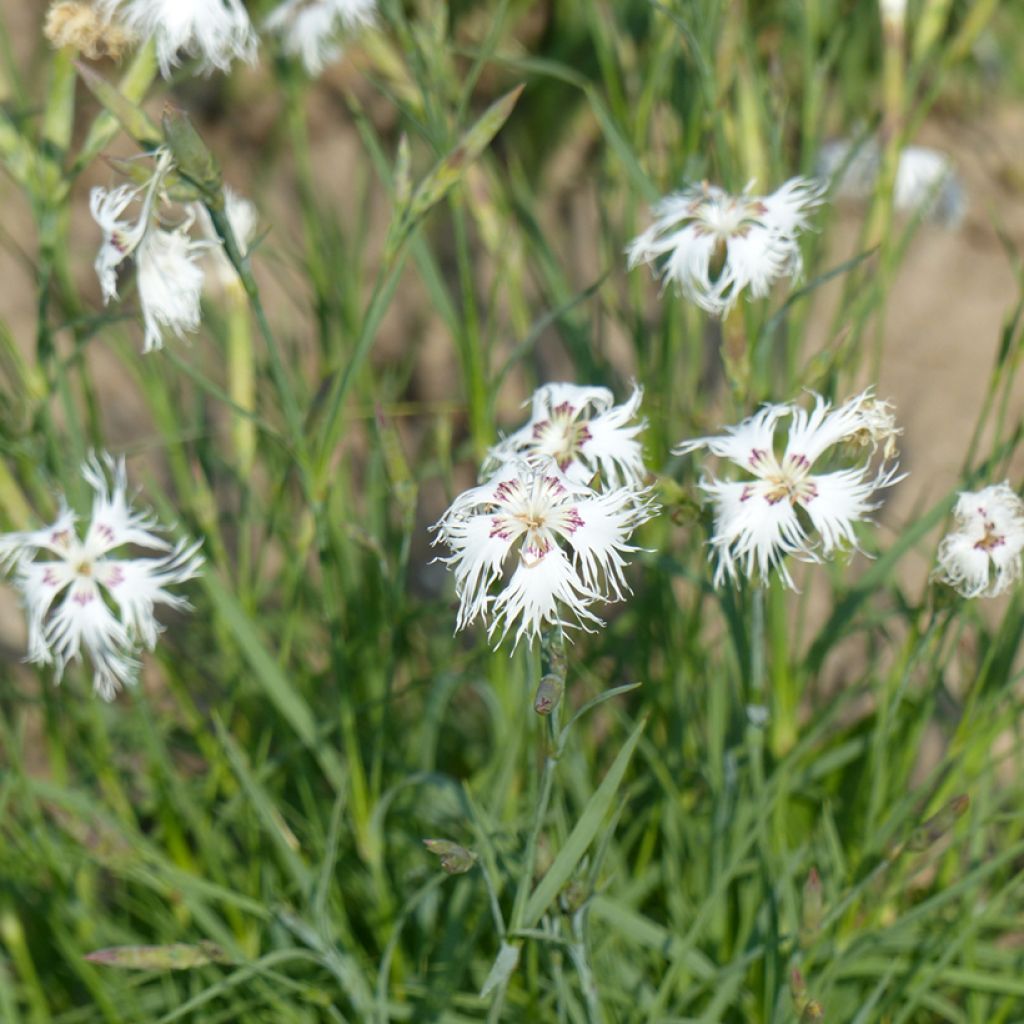

Dianthus arenarius seeds
Dianthus arenarius seeds
Dianthus arenarius
Sand pink
This item cannot be shipped to the selected country
Dispatch by letter from €3.90
More information
Schedule delivery date,
and select date in basket
This plant carries a 6 months recovery warranty
More information
We guarantee the quality of our plants for a full growing cycle, and will replace at our expense any plant that fails to recover under normal climatic and planting conditions.
Seed-only orders are dispatched by sealed envelope. The delivery charge for seed-only orders is €3.90.
Does this plant fit my garden?
Set up your Plantfit profile →
Description
The Sand perennial Carnation, in Latin Dianthus arenarius, is a valuable botanical species for dry, sandy or rocky soils, in cold climates. Originating from coastal regions of Northern Europe, this plant stands out for its cold resistance and low water requirements. Its white flowers display finely cut petals and emit a delicate fragrance. This summer flowering will bring a touch of lightness and charm to rockeries and border edges.
Dianthus arenarius belongs to the Caryophyllaceae family, like all carnations. This species is native to the Baltic Sea coasts, especially Sweden and the Baltic countries. In the wild, the plant thrives on sandy, poor, and well-drained soils. This perennial forms compact clumps of 20 to 30 cm in height. Its leaves are linear, dark green, and quite thin, resembling grass. They persist through winter. Flowering occurs from June to August, in the form of white, 2 to 3 cm diameter flowers. The petals are deeply cut along the edges, giving the flower a distinct finely toothed appearance. The flowers release a gentle fragrance, especially in the evening. They are carried by thin but sturdy stems.
To accompany the Sand perennial Carnation, choose small hardy plants suited for sandy soils such as Armeria maritima, Sea Thrift, which forms small tufts and produces pink, red, white, or purple flowers or Silene maritima 'Weisskehlchen', another light coastal plant with white bell-shaped flowers. Also consider Eryngium maritimum (Sea Holly), with its architectural, bluish foliage and round flowers. Sedum acre 'Yellow Queen', forming a green carpet and yellow flowers, will complement this plant palette.
Report an error about the product description
Flowering
Foliage
Plant habit
Botanical data
Dianthus
arenarius
Caryophyllaceae
Sand pink
Northern Europe
Other Dianthus seeds
Planting and care
Dianthus arenarius seeds should be sown in spring, about 10 to 12 weeks before the last frost. Use a light and well-draining compost (sowing mix). Sow the seeds on the surface, covering them very lightly with soil, as they need light to germinate. Keep the substrate moist, but not waterlogged, and place the seedlings in a bright area, ideally around 15-21°C. Germination takes about 10 to 20 days. Once the seedlings are sufficiently developed, with several leaves, transplant them into the ground once the risk of frost has passed, spacing them 20 to 30 cm apart.
Cultivation:
Dianthus arenarius appreciates well-drained, rather poor, sandy soil, and a sunny exposure. It is ideal for sandy or rocky soils and prefers a neutral to slightly alkaline pH (limestone). It withstands drought very well once established and can withstand winter temperatures down to -20°C. To promote continuous flowering, regularly remove faded flowers. Avoid excessive watering: overly wet soil can lead to root rot problems. In spring, you can add a balanced fertiliser to stimulate flowering, and lightly prune the plants after flowering to encourage a new flowering cycle.
Sowing period
Intended location
This item has not been reviewed yet - be the first to leave a review about it.
Flower seeds
Haven't found what you were looking for?
Hardiness is the lowest winter temperature a plant can endure without suffering serious damage or even dying. However, hardiness is affected by location (a sheltered area, such as a patio), protection (winter cover) and soil type (hardiness is improved by well-drained soil).

Photo Sharing Terms & Conditions
In order to encourage gardeners to interact and share their experiences, Promesse de fleurs offers various media enabling content to be uploaded onto its Site - in particular via the ‘Photo sharing’ module.
The User agrees to refrain from:
- Posting any content that is illegal, prejudicial, insulting, racist, inciteful to hatred, revisionist, contrary to public decency, that infringes on privacy or on the privacy rights of third parties, in particular the publicity rights of persons and goods, intellectual property rights, or the right to privacy.
- Submitting content on behalf of a third party;
- Impersonate the identity of a third party and/or publish any personal information about a third party;
In general, the User undertakes to refrain from any unethical behaviour.
All Content (in particular text, comments, files, images, photos, videos, creative works, etc.), which may be subject to property or intellectual property rights, image or other private rights, shall remain the property of the User, subject to the limited rights granted by the terms of the licence granted by Promesse de fleurs as stated below. Users are at liberty to publish or not to publish such Content on the Site, notably via the ‘Photo Sharing’ facility, and accept that this Content shall be made public and freely accessible, notably on the Internet.
Users further acknowledge, undertake to have ,and guarantee that they hold all necessary rights and permissions to publish such material on the Site, in particular with regard to the legislation in force pertaining to any privacy, property, intellectual property, image, or contractual rights, or rights of any other nature. By publishing such Content on the Site, Users acknowledge accepting full liability as publishers of the Content within the meaning of the law, and grant Promesse de fleurs, free of charge, an inclusive, worldwide licence for the said Content for the entire duration of its publication, including all reproduction, representation, up/downloading, displaying, performing, transmission, and storage rights.
Users also grant permission for their name to be linked to the Content and accept that this link may not always be made available.
By engaging in posting material, Users consent to their Content becoming automatically accessible on the Internet, in particular on other sites and/or blogs and/or web pages of the Promesse de fleurs site, including in particular social pages and the Promesse de fleurs catalogue.
Users may secure the removal of entrusted content free of charge by issuing a simple request via our contact form.
The flowering period indicated on our website applies to countries and regions located in USDA zone 8 (France, the United Kingdom, Ireland, the Netherlands, etc.)
It will vary according to where you live:
- In zones 9 to 10 (Italy, Spain, Greece, etc.), flowering will occur about 2 to 4 weeks earlier.
- In zones 6 to 7 (Germany, Poland, Slovenia, and lower mountainous regions), flowering will be delayed by 2 to 3 weeks.
- In zone 5 (Central Europe, Scandinavia), blooming will be delayed by 3 to 5 weeks.
In temperate climates, pruning of spring-flowering shrubs (forsythia, spireas, etc.) should be done just after flowering.
Pruning of summer-flowering shrubs (Indian Lilac, Perovskia, etc.) can be done in winter or spring.
In cold regions as well as with frost-sensitive plants, avoid pruning too early when severe frosts may still occur.
The planting period indicated on our website applies to countries and regions located in USDA zone 8 (France, United Kingdom, Ireland, Netherlands).
It will vary according to where you live:
- In Mediterranean zones (Marseille, Madrid, Milan, etc.), autumn and winter are the best planting periods.
- In continental zones (Strasbourg, Munich, Vienna, etc.), delay planting by 2 to 3 weeks in spring and bring it forward by 2 to 4 weeks in autumn.
- In mountainous regions (the Alps, Pyrenees, Carpathians, etc.), it is best to plant in late spring (May-June) or late summer (August-September).
The harvesting period indicated on our website applies to countries and regions in USDA zone 8 (France, England, Ireland, the Netherlands).
In colder areas (Scandinavia, Poland, Austria...) fruit and vegetable harvests are likely to be delayed by 3-4 weeks.
In warmer areas (Italy, Spain, Greece, etc.), harvesting will probably take place earlier, depending on weather conditions.
The sowing periods indicated on our website apply to countries and regions within USDA Zone 8 (France, UK, Ireland, Netherlands).
In colder areas (Scandinavia, Poland, Austria...), delay any outdoor sowing by 3-4 weeks, or sow under glass.
In warmer climes (Italy, Spain, Greece, etc.), bring outdoor sowing forward by a few weeks.

































